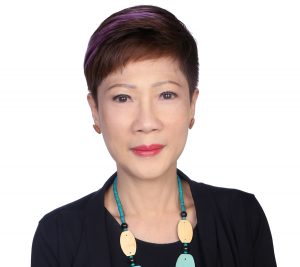Creativity, Grit and Clear Thinking: All Part of the Package for Amy Chung

CEO: Amy Chung
Amy Chung, chief executive officer at Singapore-based Containers Printers, has learned over the years which qualities good corporate leaders need.
“They need to be creative, inclusive and exclusive,” she says, “decisive when required, and clear in their thoughts.” Following her own advice has worked well for Chung and the company. “My past exposure to the financial industry has been very useful for me to view the business from a new perspective. This allows me to take a new approach to management.”
Containers Printers began producing and printing metal containers in 1981 at its factory in Singapore. Early products included the square cooking oil tins so commonly seen throughout Southeast Asia.
The firm’s skills and offers have diversified over the years, and the portfolio includes metal and flexible laminate packaging solutions for customers around the world.
Chung’s aim is to transform the business, and the sector, to suit a more dynamic and volatile environment and play a key role in the lifecycle of the products. “I hope the industry will be recognised as having an important part to play in megatrends like climate change,” she says. “I would like to see a more globally harmonised regime of legislation and regulation. The minimum is to be more transparent, with less bureaucracy and a shorter approval time.”
The packaging industry has high capital expenditure, she says, and is evolving into an intensely competitive sector. “Good technical skills are always required, however, old business models and management styles are less relevant in today’s context.”
That evolution also leads to improved environmental friendliness. “The increasing awareness of ESG has compelled companies to demonstrate their commitment to improving sustainability outcomes,” she says. “Many publicly-listed companies, as well as larger privates and start-ups, have set up new teams to oversee ESG and sustainability and set sustainability targets. More start-ups with sustainability solutions are to be incorporated to leverage that increased interest.”
Containers Printers does face some challenges, Chung admits. “The company continues to face increasing costs in all areas, from raw materials to supply chain logistics. There is higher volatility in client outlooks, and there are manpower shortages and regulatory changes due to geopolitical tensions. The smooth recovery of the global economy for a robust recovery is not imminent.”
But challenges do not leave her in despair. “To become a global business, one must have strong determination to overcome all kinds of opposition, failures and unknowns.
“In the short- to mid-term, there will be further consolidation and re-prioritisation of focus to allocate resources. The new drivers of the business world excite me most. It will be interesting to see how all these geopolitical tensions, de-coupling of economies, and unpredictable disruptions and eruptions from planet Earth play out and influence our generation.”
Amy Chung believes in a decentralised control structure, and gives department heads the autonomy to show their capabilities and sense of responsibility. “The team’s key advantage lies in complementary strengths,” she says. “This harnesses collaboration and fosters stronger efforts. The success of the company does not depend on one person, but on a good support team that gets the work done together.”
You may have an interest in also reading…
Dr Rak Vorrakitpokatorn: Taking the Steps to Sustainability
Until fairly recently, the global community strived for economic gains while ignoring environmental, social and community impacts. Extreme climate change
Svenska Cellulosa Aktiebolaget SCA: Growing Forests and Renewable Products to Fight Climate Change
With 2.6 million hectares of forest in northern Sweden and 50,000 in Estonia and Latvia, SCA is Europe’s largest private
Active Re COO Luis Antonio Ibáñez: Sound Underwriting, Respect, and an Eye for Opportunity…
‘Our policy? No policy. We have strategy instead,’ quips COO of reinsurance giant Active Re Active Re, founded in 2007
















































































